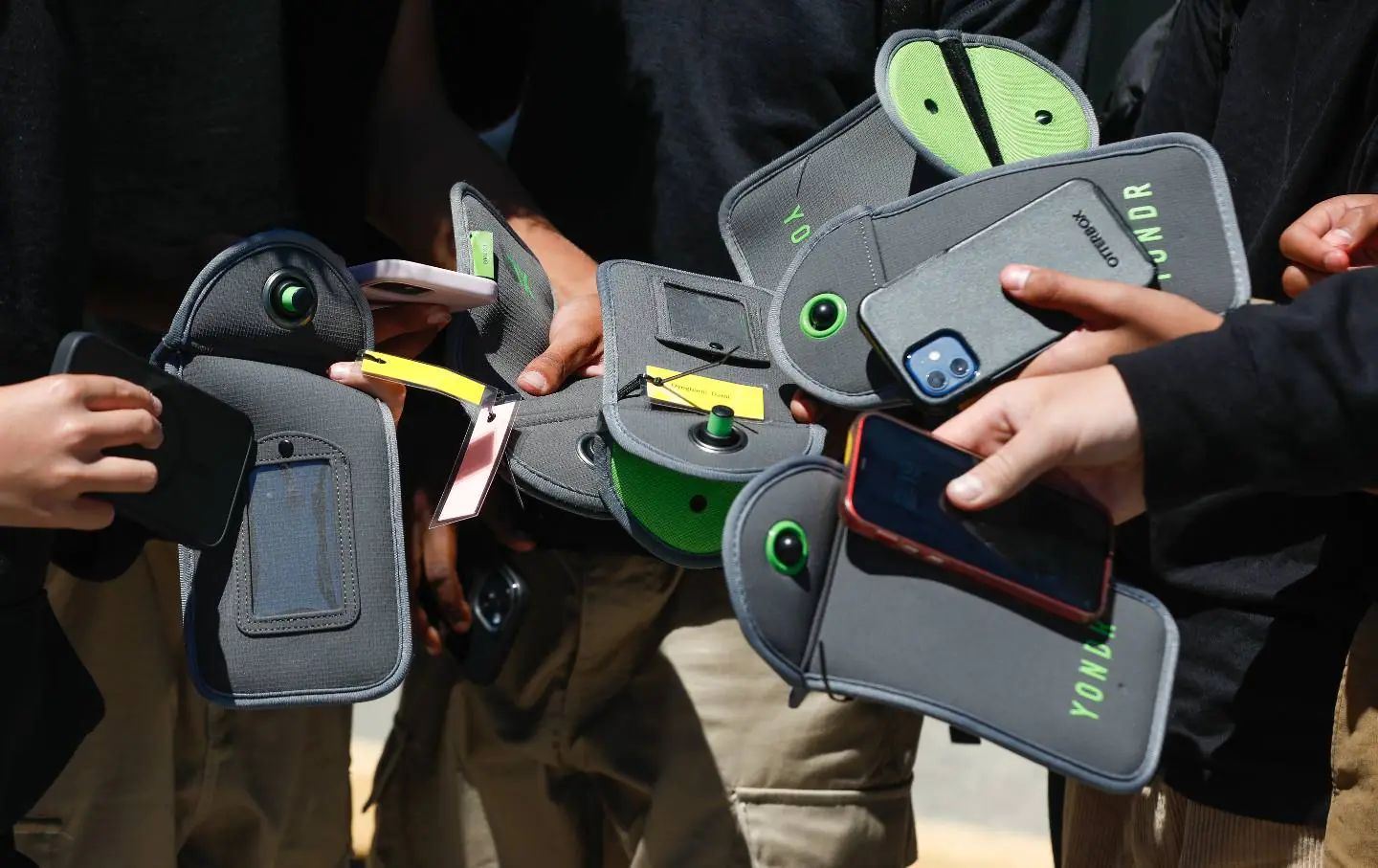[ad_1]
Society
/
StudentNation
/
October 8, 2024
New York Gov. Kathy Hochul has considered a statewide ban on smart devices in schools, but many parents, students and teachers are taking a more nuanced view.
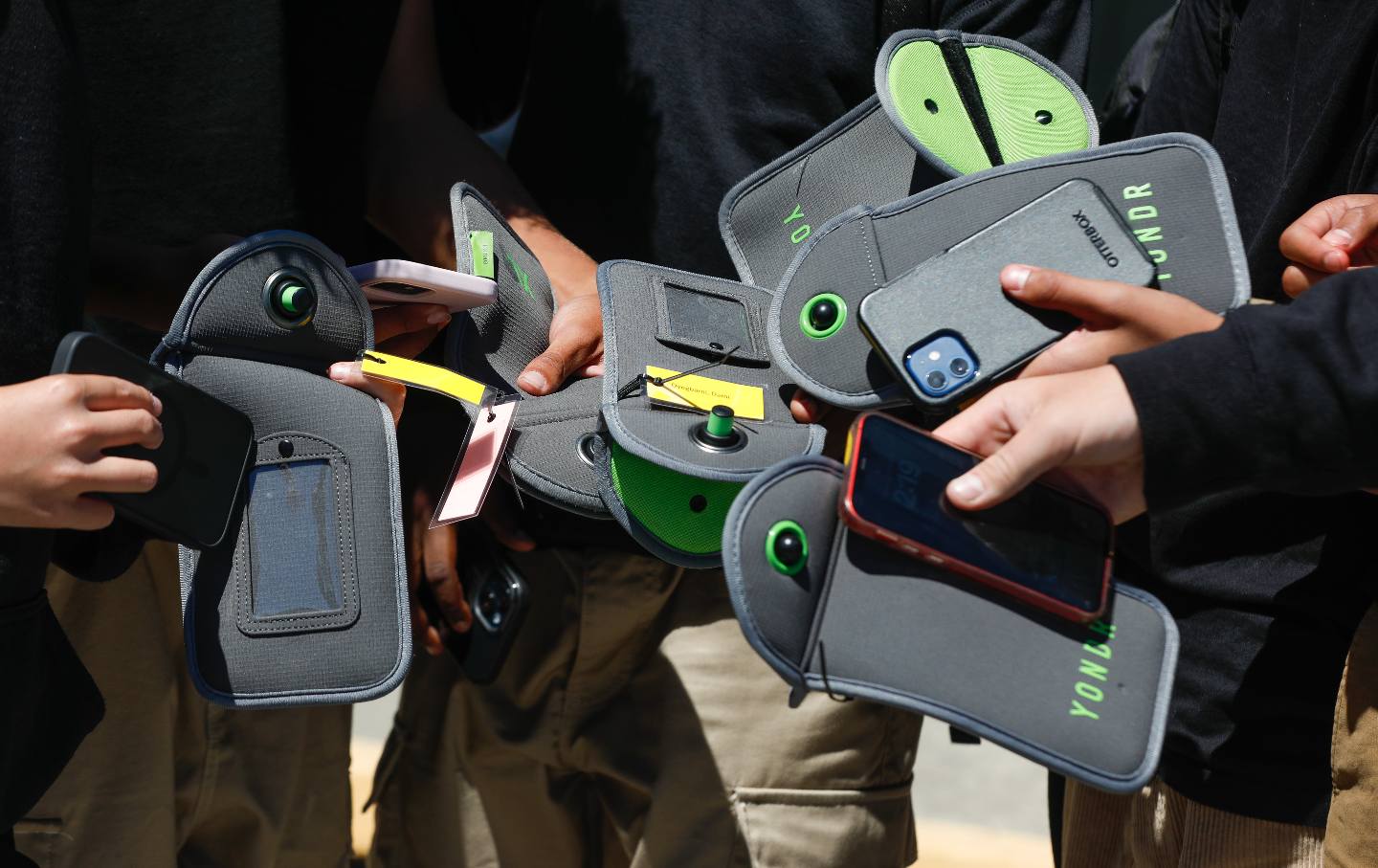
A student uses his cell phone after opening the bag that protects it from use at Bayside Academy in California.
(Lea Suzuki/Getty)
When I started seventh grade, my high school banned all cell phones. This was in 2019, right before the Covid pandemic, and the school administration was tired of dealing with teenage TikTokers. It didn’t matter if we brought a flip phone or the latest iPhone – we locked them all in the teacher’s locker at the start of the school day.
We were shocked: in the previous year, our phones were often included in the lesson plan. The teachers told us to take out our phones to look it up or fill out a Google form. We used it like a small computer – for quick tasks when school laptops weren’t available.
nationwide, states and school districts enacts laws and policies that restrict student use of smartphones. Gov. Kathy Hochul proposed a national ban on smart devices in schools, and both Mayor Eric Adams and New York City Schools Chancellor David Banks called for a ban over the summer. Days before she resigned on Oct. 7, Banks told FOX 5 New York that “now is not the time” to implement the ban, saying she had received pushback from parents who worried she would be contacted in an emergency. they can walk with their children.
In 2015, Mayor Bill de Blasio lifted the city’s ban on cell phone use in public schools, calling it “a departure from modern parenting.” In practice, the ban led to “uneven enforcement” and penalized students “especially in schools with metal detectors in low-income communities.” press release at that time. “Parents should be able to call or text their kids,” de Blasio said.
Sure, previous generations of teenagers survived without tools and parents never worried, but they also didn’t grow up in a world where frequent school shootings were a reality. Now in my fourth and final year at Stuyvesant High, where our phones are still allowed, I’ve lived through several bomb scares—all hoaxes, but unsettling nonetheless, and evacuations have brought me home hours late. I was able to text my parents which kept them from worrying. Governor Hochul he argues that in an emergency “cell phone use” can distract students and put them in “harm.” But if we can’t guarantee safety in our own classrooms, what’s the wisdom in losing perhaps the only line of communication?
In a school of about 3,400 students, many don’t have time to come to school earlier and leave later, as we would have to do if the phones were collected. The Yondr pouches, which can be closed and opened by school staff at designated locations, are expensive and put an additional strain on already tight school budgets. These magnetic cases are among the cost $25 and $30 for all students. Although a pouch allows me to track my own device, not every school can afford it. In addition, the logistics of opening and closing the pouches for different scenarios such as after school activities or lunch is difficult.
Current number

For example, if a student had to leave early during a seventh-grade suspension, he had to find the teacher and disrupt class to get his phone back. Meanwhile, our parents, who bought us the phones so they could track our whereabouts (as many of us went to school unaccompanied for the first time), were upset because they turned off our devices from 8:30. a.m for 3 p.m.
Most importantly, we need phones, and I’m not just saying that because I’m a screen saver. In a school with a large population like mine, phones are used for everyday communication. My classmate and fellow senior Astrid Harrington lamented the logistical problems a ban could impose on competing teams: “Stuyvesant’s debate team uses Messenger to deliver messages throughout the day. The math team sends schedules to members via Discord and email. Last year I used email to spread the word about Spanish tutoring.” Waiting until the end of the day to provide information could mean missing out on a competition or a coveted tutoring session.
At my school, teachers also use phones as part of their lessons, both to enrich the learning experience through online educational games and to teach digital literacy. Almost every day, a teacher asks my class to take out our phones and search for information. While NYC DOE Safety Director Mark Rampersant has suggested that phones be allowed for educational purposes even with the ban, that inclusion seems like an afterthought and doesn’t take into account the flexible ways phones can be used in lesson plans.
Many teachers have a more nuanced view of the usefulness of cell phones. “My students can handle being told when to take out their devices and when not to,” says English teacher Kerry Garfinkel, who pointed out that it depends on the school and that a blanket ban “wouldn’t be a good idea.” He adds: “Using the phone in the classroom is part of the pedagogy.”
However, he mentions that this may not work in all schools: “I’ve been in urban schools where they have serious problems with phones. The children use them in every lesson, constantly, and it adds discipline to the already difficult work.” Most of the people I spoke to pointed out that the mobile phone is a part of everyday life and cannot be completely eliminated.
It’s true that cell phones distract us. according to a study conducted by Common Sense Mediaabout 97 percent of students use their phones “for an average of 43 minutes” during the school day. This is my class at my school. Eden Lewke, another classmate, agreed that “when kids have access to their phones, they’re automatically logged out or busy, so not having a phone helps students be more present.” Jolie Yeung, a junior at Stuyvesant, agreed: “I feel like my cell phone is a distraction during the school day. I have a hard time concentrating on my class work or what we’re learning in class because I’m either on my phone or I’m distracted thinking about something I just saw on my phone.”
Popular
“Swipe to the bottom left to see more authors”Slide your finger →
But generations of students have zoned out without the help of technology, as evidenced by decades of overlapping graffiti on our school desks. A simple reminder before class from the teacher to pay attention and not look at cell phones is likely to increase concentration. If that doesn’t work, putting phones in an organizer at the front of the classroom when students come in is a better idea than a blanket ban.
“Teenagers are still on the phone at home, potentially longer than before, to compensate for time lost during the school day,” Harrington said. “I would also bypass the ban. High schoolers are nothing if not persistent.”
Can we count on you?
In the next election, the fate of our democracy and our basic civil rights will be on the ballot. The conservative architects of Project 2025 seek to institutionalize Donald Trump’s authoritarian vision at all levels of government should he win.
We have seen events that fill us with fear and cautious optimism—all the while, The Nation he was a bulwark against misinformation and an advocate for bold, principled viewpoints. Our dedicated writers interview Kamala Harris and Bernie Sanders, unpack JD Vance’s shallow right-wing populist appeals, and discuss the path to Democratic victory in November.
Stories like this and the one you have just read are vital at this critical juncture in our country’s history. Now more than ever, we need clear-eyed and in-depth independent journalism to make sense of the headlines and sort fact from fiction. Donate today and join our 160-year legacy of speaking truth to power and raising the voices of grassroots advocates.
In 2024, which will likely be the defining election of our lifetimes, we need your support to keep delivering the insightful journalism you rely on.
Thanks,
The editors The Nation
More from here The Nation

FIFA banned apartheid South Africa. Banned Russia due to its occupation of Ukraine. But FIFA does nothing about Israel.
Jules Boykoff and Dave Zirin
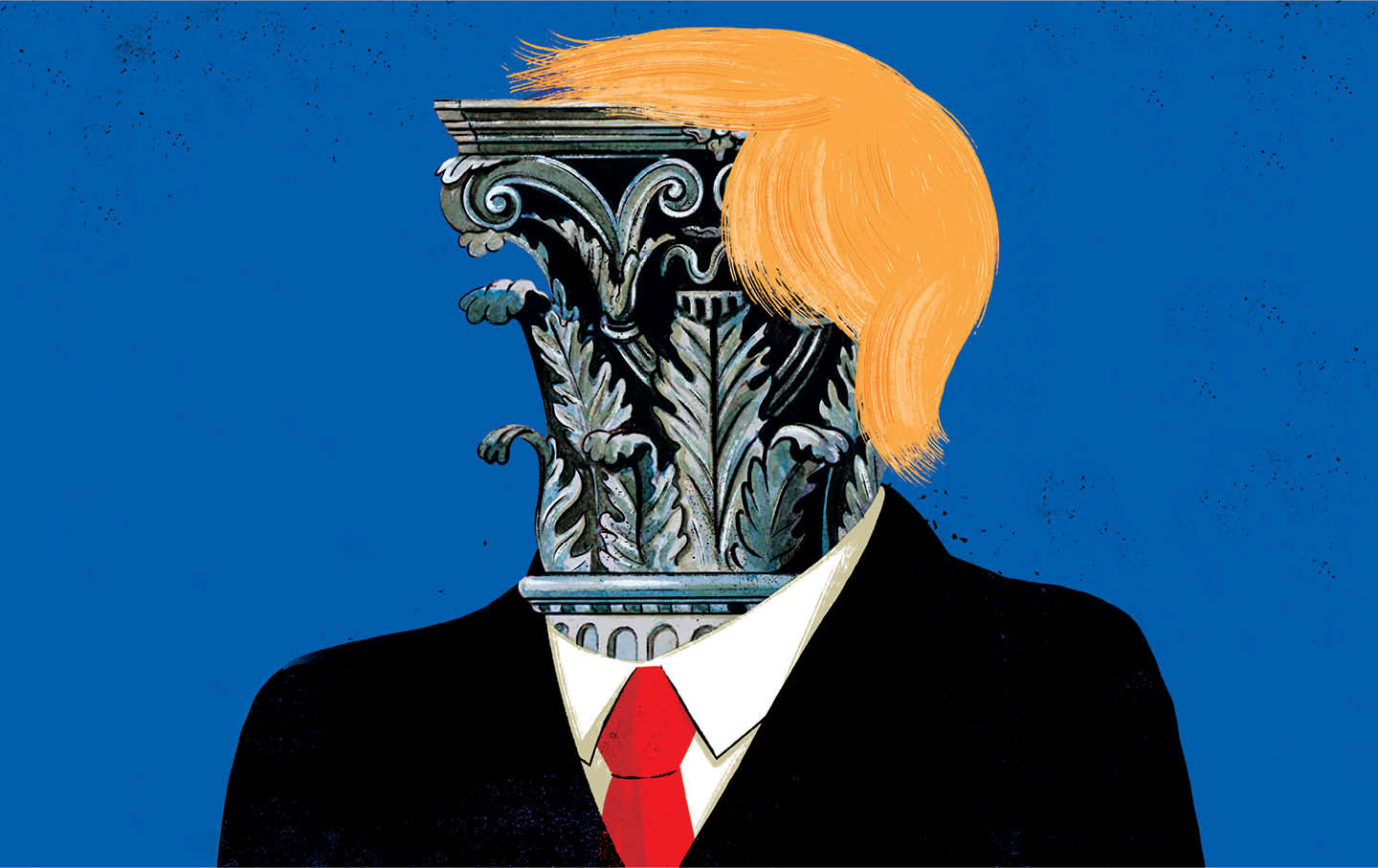
To understand the ambitions of the conservative majority, look no further than Project 2025, created by the same people who created the current court.
Function
/
Elie Mystal
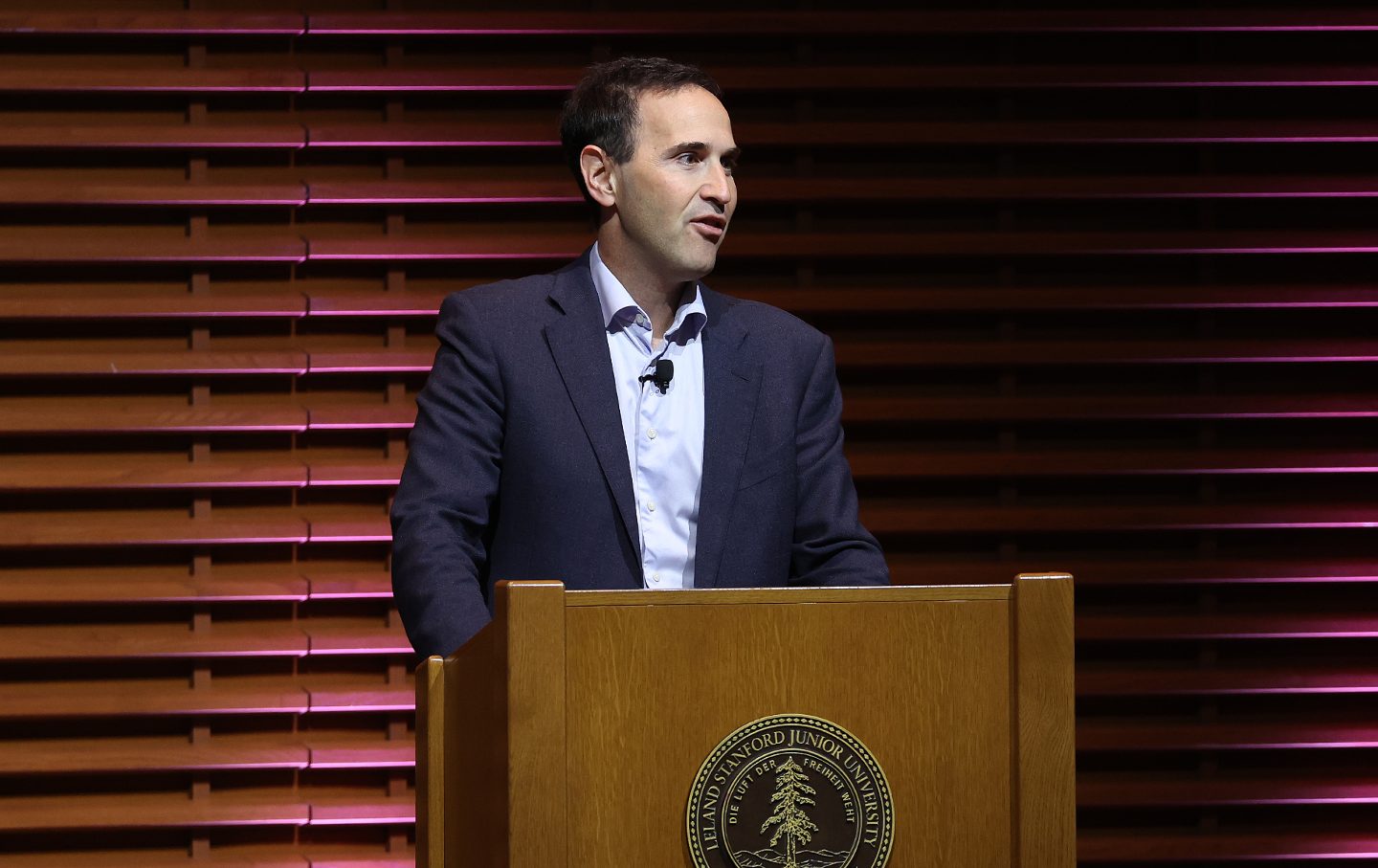
Why are places like Stanford and Johns Hopkins hosting gatherings of well-known coronavirus drivers?
Gregg Gonsalves

The baseball legend exemplified not only the dangers of gambling, but also why the online betting industry’s embrace of sports leagues makes them predatory hypocrites.
Obituary
/
Dave Zirin
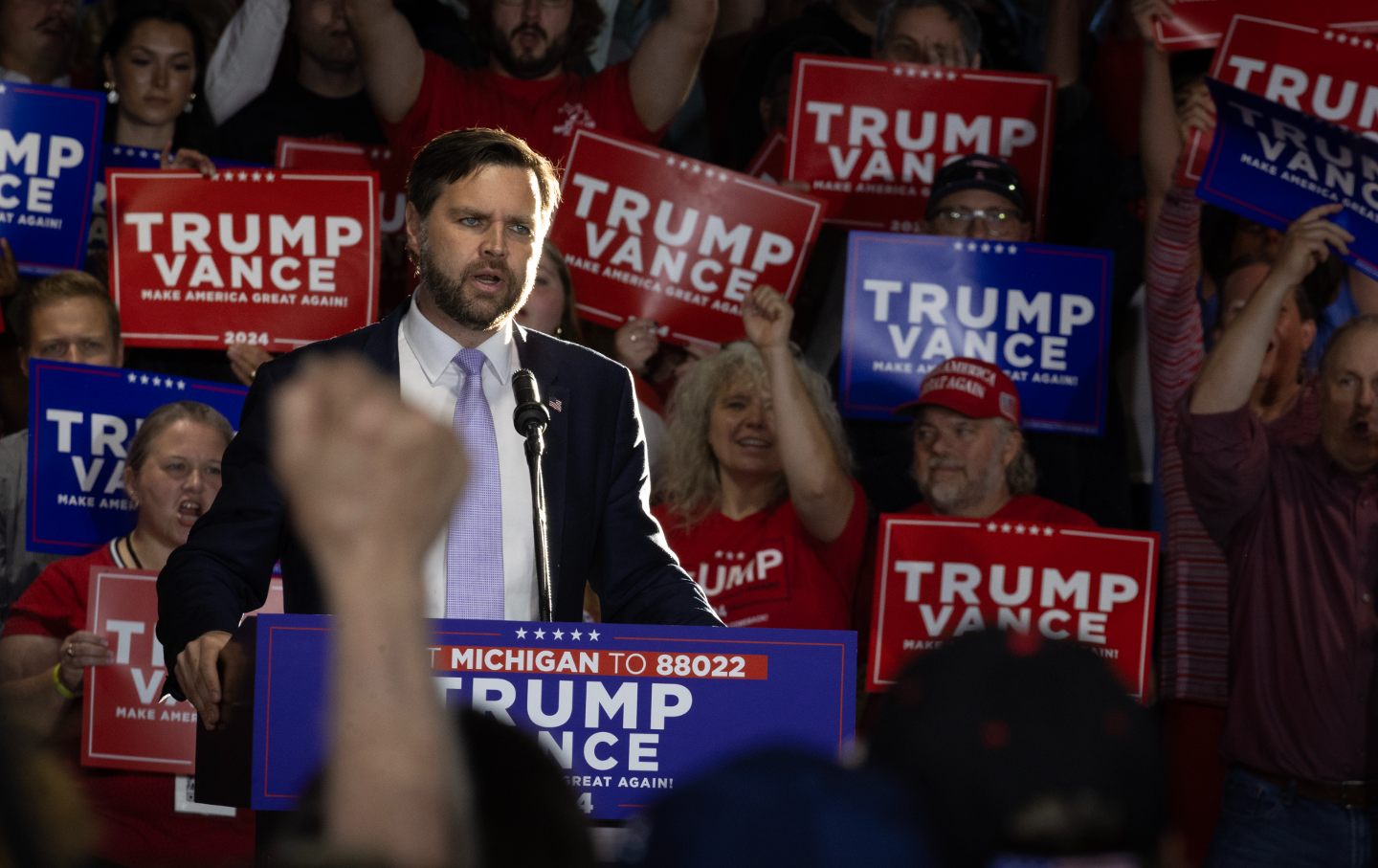
Abortion bans are not only harmful to women and their families, but they also do not recreate the past as conservatives would like.
Elizabeth Gregory
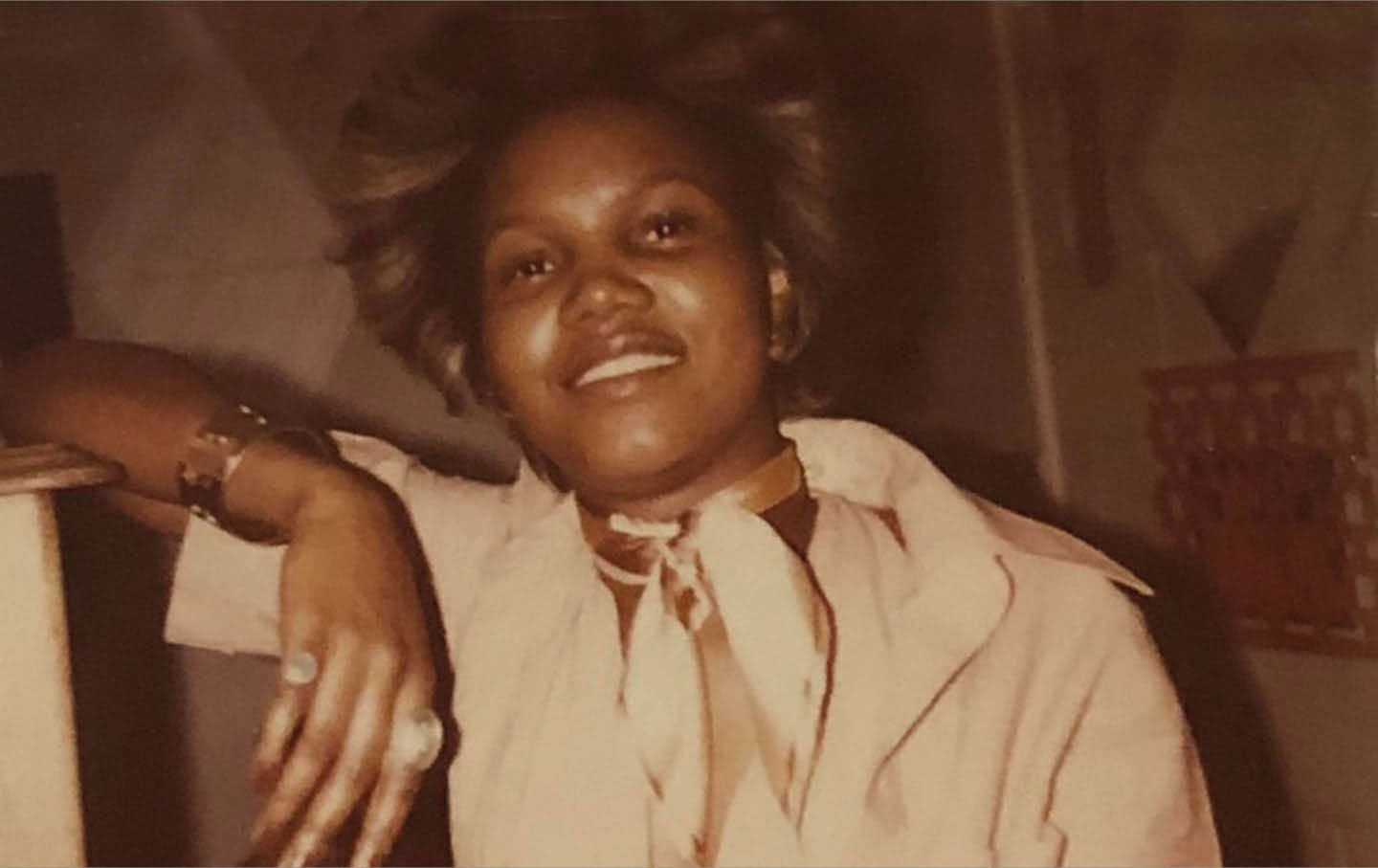
Sakinah discovered Chicago Abortion Counseling Services, better known as Jane, because she wanted to help a friend. Then it became an essential part of it.
Function
/
Renee Bracey Sherman and Regina Mahone

